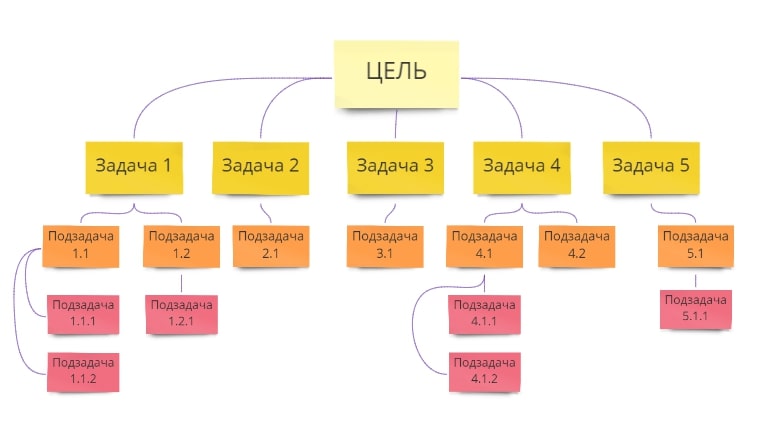You have important and urgent tasks, which ones need to be done first? The question is debatable and depends on the situation. But it is absolutely certain that regardless of the situation, your brain will choose understandable and pleasant tasks. So, you have a task, but you put it off and do everything but what you need. Let’s talk about how to solve, select and complete urgent tasks, decision making, problem solving, how to solve complex issues: algorithm, tips and approaches. 
Let’s figure it out
Questions to ask yourself: Is the task clear? Are the architecture and technologies clear? Maybe it’s not the task, but the processes? Think about these questions in the context of the task and try to understand what causes discomfort. All problem areas are your growth areas that need to be worked out . Sometimes, it is easier to change a project or company than to untangle the tangle of accumulated problems. But unresolved problems will not go away. Absolutely, a similar situation will happen and this will be the ceiling in your career if you do not learn to overcome such situations and win in them. Let’s look at each of the points with examples.
The task is unclear
The wider your area of responsibility, the more abstract and incomprehensible tasks you will receive. Make solving obscure problems your competitive advantage. Decompose, break down into understandable tasks, look for colleagues and teams who can give advice and consult. Don’t be afraid to ask questions, create subtasks, and solve a problem piece by piece.
Everything is clear, but you don’t agree with the task
If there are contradictions and unanswered questions, then go and ask. Try to explain to those who set the task that the task should not be done or should be done differently. Either they will explain to you why you need to do this, or the task will be cancelled. There are situations when everyone will remain to their own. But work is work, get together, get it done and continue to participate in the life of the project. The only thing is, this should be a one-time event. If you do not agree with most of the tasks and do them contrary to your understanding and desire, then you clearly need to either understand the project or change the project.
Are the architecture and technologies to complete the task clear?
Now that we’ve sorted out the problem statement, let’s move on to analyzing the technical part. A common reason for procrastination can be a gap in your knowledge. There is only one way to figure it out. Ignorance of technology is a common problem between you and your employer. Therefore, depending on the situation, you need to either solve the problem together during working hours and incorporate this into the completion of the task. Or allocate personal time for this, if the problem is you and it’s easier for the employer to replace you. If you have everything figured out, the technologies are clear, but the tasks are not getting done – try to find and solve problems in the project. This could be accumulated technical debt. In this case, your point of growth will be to solve this technical debt. Explain to the manager that due to problems in the project, tasks are taking a long time to be completed, and work with the team on ways to resolve technical debt. And most importantly, understand how to avoid accumulating this technical debt in the future. Figuratively speaking, there is no point in drying the carpet if your faucet is leaking – fix the faucet, the carpet will dry itself. The task is clear, the technology and the project are clear. Processes remain.
Explain to the manager that due to problems in the project, tasks are taking a long time to be completed, and work with the team on ways to resolve technical debt. And most importantly, understand how to avoid accumulating this technical debt in the future. Figuratively speaking, there is no point in drying the carpet if your faucet is leaking – fix the faucet, the carpet will dry itself. The task is clear, the technology and the project are clear. Processes remain.
Processes
Perhaps you are putting off not the task itself, but what comes after it. For example, code review, presentation, testing or rolling out into production. There is only one way out, it will be easier to solve these problems and tasks. Write down problems and solve them.
It will hurt at first and you will try to run away from it. Let me remind you that this is where your career growth lies.
If you’re put off by one of your colleagues’ nasty comments during a code review, pair programming with them while completing a task. This will improve your skills and provide for the nuances in advance. Plus, this person will be more loyal to you during the review, because… he himself took part in solving the problem. Communicate with him more, often all people are good and what you perceive as toxicity is for someone else a waste of their time on your incompetence, and he is trying to help you. Develop and work ahead.
What if you’re tired of working?
And there remains the last, unnamed point. You’re just tired of working. And this also has reasons that need to be addressed. For example, you don’t know how to relax, you spend your personal time and vacation watching TV series instead of changing your occupation. The best way is to set affordable goals for physical development and achieve them. For example, sit down a thousand times in a week (or any other comfortable time), go hiking or diving.
Career
And the very last point, what will happen when you complete the task? Where will this lead you? If solving a problem only leads to a dozen more similar tasks, then there is no need to rush, especially if the employer is satisfied with this pace. If you need drive, career growth, ambitious goals, then the current situation is a reason to talk to your manager. Perhaps you have simply grown out of such tasks and need more interesting tasks on your current (or new) project.
To summarize: the checklist is as follows
Necessary:
- Go on vacation and have quality rest.
- Look for problem areas and solve them. Often, they are not hidden in the tasks themselves.
- To understand whether the project is right for you, perhaps measured work, without rushing – this is your pace and you just need to get behind yourself, if both you and the employer are happy with everything.
- Listen to yourself, expand your comfort zone, and then more and more tasks will become understandable and enjoyable for you.




